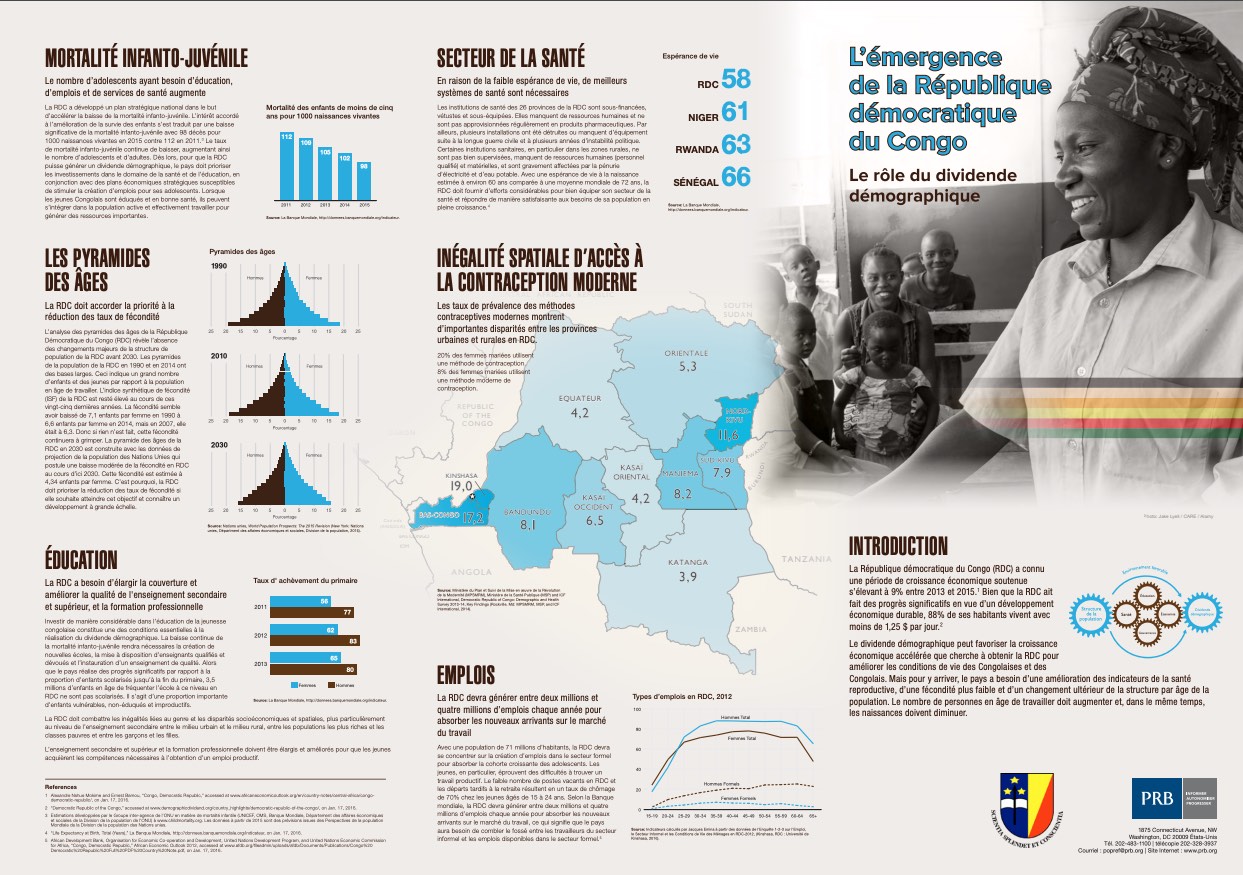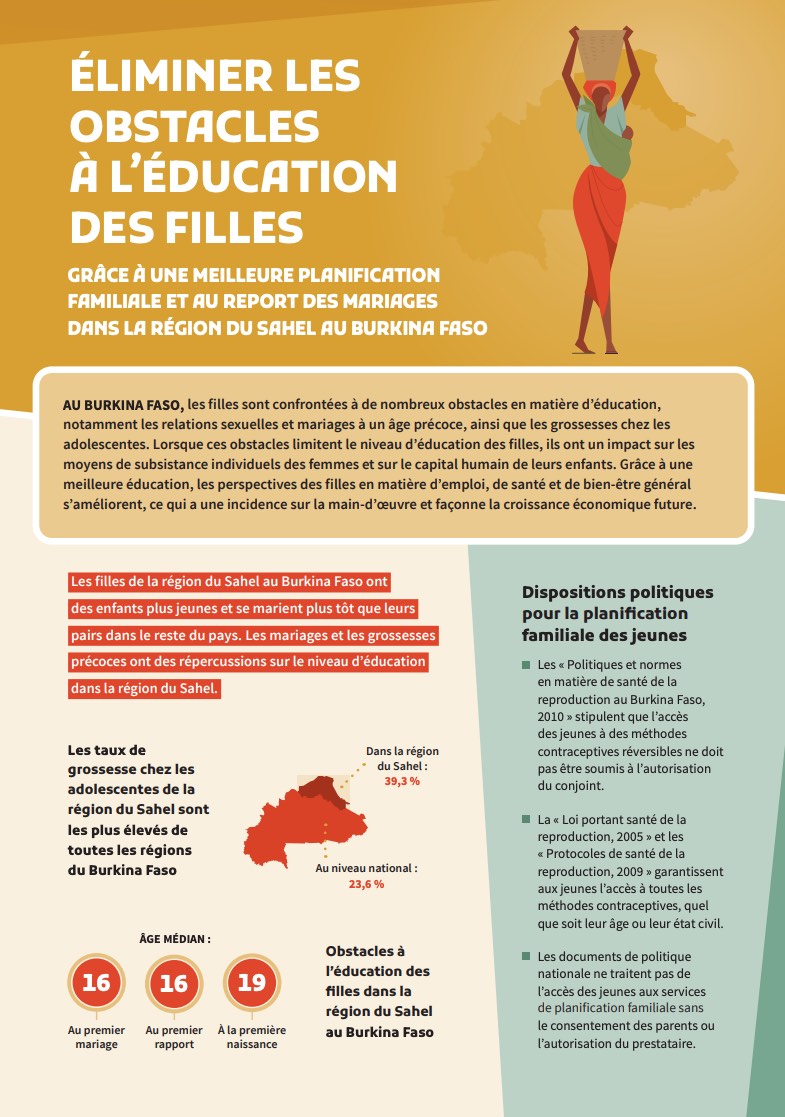64 Search Results Found For : "infographic"


Project: PACE: Policy, Advocacy, and Communication Enhanced for Population and Reproductive Health
Delaying Marriage and Childbearing Can Improve Educational Outcomes in Burkina Faso’s Sahel Region
In Burkina Faso’s Sahel Region, girls are more likely to drop out of primary and lower secondary school than girls nationally.

Project: Demographic Dividend: Ensuring Regional and National Commitment and Action
The Emerging Democratic Republic Of Congo: The Role of the Demographic Dividend
(2016) The Democratic Republic of Congo (DRC) has experienced a period of sustained economic growth, averaging about 9 percent between 2013 and 2015.

Project: Demography and Economics of Aging and Alzheimer’s Disease
Family Caregiving for Older People
(2016) In the United States, the vast majority of care that allows older people to live in their own homes is provided by family members who do not receive pay for their services.
Family Planning: The Changing Path of Unmet Need
PRB's ENGAGE presentation, "Family Planning: The Changing Path of Unmet Need," aims to improve understanding of why women who say that they want to postpone their next birth, or not have any more children, are not using any form of contraception.
People, Health, Planet – Longstanding PRB Project Gets a New Name
For 20 years, Population Reference Bureau has been connecting human health and planetary health, to show how population dynamics (including family planning) and environmental change interact and affect human and planetary health. Our new name for this practice area is People, Health, Planet.
Project: Empowering Evidence-Driven Advocacy
Encouraging Indian Corporate Investments in Family Planning
PRB collaborated with AFP and Pathfinder International to develop a multimedia video outlining how family planning shapes women’s empowerment and community well-being.

Progress in U.S. Women’s Well-Being Stalled in Recent Generations
(2017) The level of well-being of young American women (ages 16 to 34) rose significantly for members of the Baby Boom generation but hit a wall for women in subsequent generations, the Population Reference Bureau (PRB) concludes in a new report.

Project: Demography and Economics of Aging and Alzheimer’s Disease
How Neighborhoods Affect the Health and Well-Being of Older Americans
Neighborhood characteristics affect people of all ages, but older adults—classified here as adults over age 50—may be affected more than other groups.
